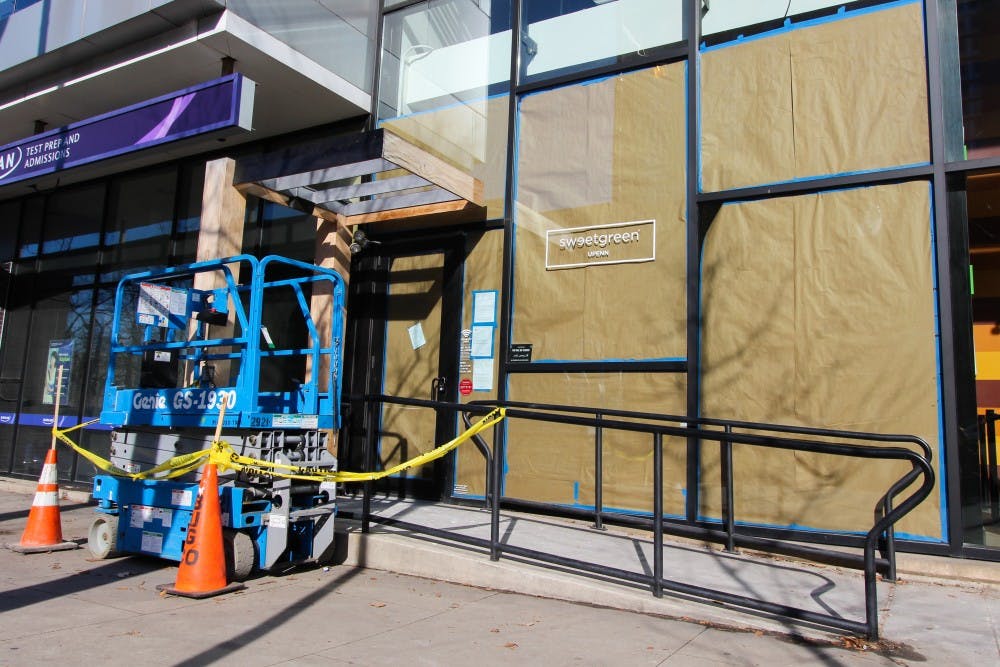
The University City Sweetgreen has been closed for renovations since Jan. 4, but when it reopens this Thursday, customers won’t be able to buy a salad with cash. As part of their new business model, all Sweetgreen stores in every state except Massachusetts will be taking payments only from credit cards, debit cards or the Sweetgreen mobile application.
In an interview with Fast Company, the founders of Sweetgreen explained what motivated the transition to cashless stores. Jonathan Neman and Nicolas Jammet pointed out that the paperless model discourages robberies, gives managers more time to interact with their staff and gives staff more time to interact with their customers. Most significantly they said, a cashless system helps give customers what they want most when they visit a fast-casual restaurant — quick, healthy food.
Predicting a reduction in transaction time of about 10 percent, Neman and Jammet said their new decision brings Sweetgreen into a 21st century business model.
“We’re working on ASAP ordering,” Neman said to Fast Company. “So it will be much more like Uber, where it says you can have your salad in six minutes or eight minutes... [Jammet and I] believe the future is hyper-experimental and hyper-convenient.”
The prospect of losing cash-paying customers did not faze the Sweetgreen owners. Over the past several years, they’ve seen a trend away from payment in hard money, which leads them to believe they won’t lose significant business.
“Cash has become such a smaller piece of our tender,” Jammet told Fast Company. “Now all stores are between 10 percent and 15 percent [for cash transactions].”
Some University City customers remain skeptical of the transition. Drexel student Abby Whalen was annoyed when she saw the new Sweetgreen sign advertising the cashless transition.
“I think it’s just silly to rule out cash when it’s still such a big thing. Cash is still really prevalent,” Whalen said. “When I go [to Sweetgreen] I usually use cash.”
A recent Gallup poll found that 22 percent of consumer still make half their payments with cash, and 10 percent of Americans even use cash exclusively. A November report filed by the San Francisco Federal Reserve suggests that cash is still “the most frequently used consumer payment instrument.”
Other students were worried about what a cashless system may mean for low-income residents who may not have bank accounts. College sophomore Daniel Pitt expressed these fears.
“It probably won’t affect [the students here at Penn],” Pitt said. “But I think [the cashless transition] is a horrifying way of excluding the poor from our society.”
Pitt’s fears are founded in statistics as well. According to a September Fortune article, 7 percent of Americans do not have bank accounts.
Still, many who work in the food industry understand Sweetgreen’s decision. Lenisha, a Cosi waitress who did not want to give her last name for privacy reasons, likes the idea of not using cash.
“It’s easier,” she said. “It’s faster to pay with a card, and most people who buy from here have a card anyway.”
The Daily Pennsylvanian is an independent, student-run newspaper. Please consider making a donation to support the coverage that shapes the University. Your generosity ensures a future of strong journalism at Penn.
Donate




